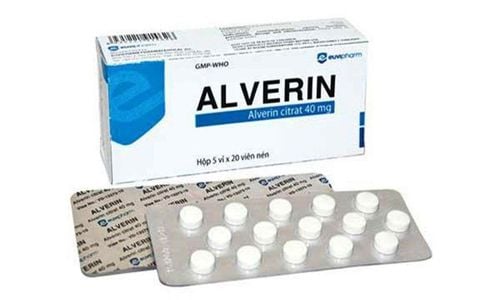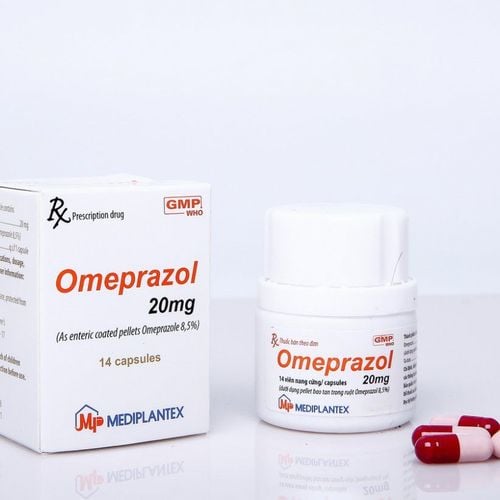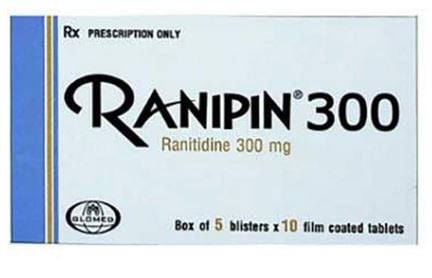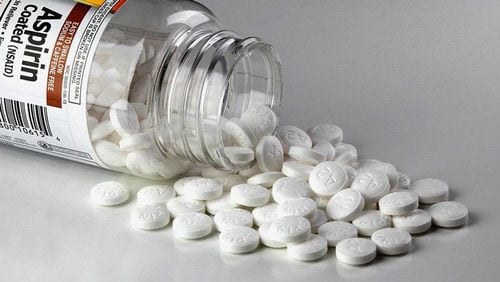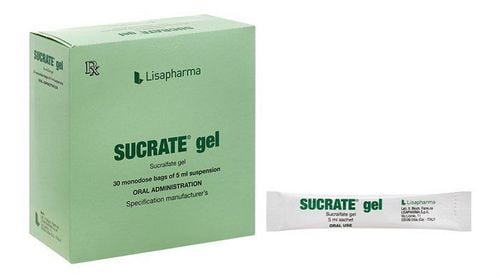This is an automatically translated article.
Prijotac is a drug that inhibits gastric acid secretion and treats many related diseases. For more detailed information about the uses of Prijotac as well as important content, please read and follow the article below.1. What is Prijotac?
Prijotac has the main ingredient Ranitidine Hydrochloride, manufactured by Pymepharco Joint Stock Company - Vietnam.
Pharmaceutical name: Prijotac drug. Drug group: Gastrointestinal drugs. Ingredients: Ranitidine Hydrochloride 50mg and excipients just enough 2ml. Dosage form: Solution for injection. Packing: Packed in boxes of 5 x 2ml tubes. Registration number: VD-5810-08. Manufacturing enterprise: Pymepharco Joint Stock Company - Vietnam.
2. What does Prijotac do?
Ranitidine belongs to the group of H2 antihistamines that inhibit gastric acid secretion. In addition, the drug also has a selective affinity for H2 receptors in the gastrointestinal tract. This prevents the action of histamine, pentagastrin and many other secretions on the parietal cells that cause gastric secretion.Prijotac is indicated for use in the following cases:
Purpose to reduce gastric acid secretion: Prophylaxis of gastric bleeding caused by stress in people with severe medical conditions. Prophylaxis of recurrent gastric bleeding in patients with a history of gastrointestinal bleeding. Before administering general anesthesia to patients at risk of acid aspiration (Mendelson's syndrome), especially in women who are in labor. Purpose of treatment: Benign peptic ulcer disease or gastric ulcer after surgery. Gastroesophageal reflux . Zollinger-Ellison syndrome.
3. Usage and dosage of Prijotac
3.1. Prijotac Dosage Prijotac has a separate dose for each patient and depending on the condition of the disease, the reference dose is adjusted as follows:
For adults:
Treatment of gastric ulcers after surgery, stomach ulcers Benign stomach, Zollinger-Ellison syndrome, gastroesophageal reflux: Use a dose of 50mg/time, each dose taken 6-8 hours apart. Prophylaxis of stress-induced gastric bleeding in critically ill patients: Initially, slow intravenous injection at a dose of 50 mg, followed by continuous infusion at a dose of 125 - 250 mcg/kg/hour. For people at risk of acid aspiration (Mendelson's syndrome): Administer by slow intravenous injection or intramuscular dose of 50mg 45-60 minutes before anesthesia. For the elderly: Use the usual dosage. For young children: Not recommended. For patients with renal failure: In severe renal failure, the dose should be reduced to 25mg in case the drug concentration in the blood increases. 3.2. How to use Prijotac The drug is used by injection in the following ways:
Slow intravenous injection: Use 50mg of ranitidine (1 ampoule of solution for injection) diluted in 20ml of diluent for injection (NaCl 0.18% and dextrose 4%, NaCl 0.9%, dextrose 5%, NaHCO3 4.2% and Hartmann's solution). Intravenous infusion: 25mg/hour. Intramuscular route: Use 50mg (in 2ml aqueous solution). 3.3. Treatment when missed dose, overdose Prijotac Missed dose:
Prijotac is used as prescribed by the doctor, that's why it is very rare to miss a dose. Overdose:
Records show that drug overdoses are unlikely to cause serious conditions. If you accidentally overdose and appear abnormal, you should immediately notify your doctor and medical staff for safe and timely handling. At this time, supportive treatment and accompanying symptoms are required, and hemodialysis is performed to remove the drug from the plasma.
4. Notes when using Prijotac
4.1. Contraindications to the drug Prijotac Do not use Prijotac for patients who are allergic or hypersensitive to any of the active ingredients and excipients in the drug.
4.2. Prijotac drug side effects During the use of the drug, some unwanted reactions that patients may experience such as:
Rare:
Liver and bile: The liver function tests are transient and reversible. dress. Skin and subcutaneous tissue: An itchy rash appears. Immune system: Causes angioedema, urticaria, angina pectoris, bronchospasm, hypotension, fever. Very rare:
Blood and lymph: Reversible leukopenia and thrombocytopenia, leukopenia, agranulocytosis, sometimes marrow hypoplasia or aplasia. Immune system: Anaphylaxis. Psychiatric: Leads to depression, causes hallucinations (seen in critically ill and elderly people), psychosis. Heart: Atrioventricular block, causing bradycardia. Eyes: Causes blurred vision, difficult to see (reversible). Vascular: Vasculitis. Central nervous system: Causing involuntary movement disorders, dizziness, headache. Gastrointestinal: Diarrhea, acute pancreatitis, hepatitis sometimes accompanied by jaundice. Musculoskeletal: Joint pain, headache. Skin and subcutaneous tissues: Erythema multiforme, causing hair loss. Urinary tract: Causes acute interstitial nephritis. Endocrine: Discomfort or enlarged breasts in men. 4.3. Drug Interactions During drug use, patients should be especially aware of transient reversible changes in liver function tests, because it may be caused by Ranitidine. In addition, to date, no serious drug interactions have been reported with the parenteral administration of Ranitidine. However, to ensure safety, doctors should still closely observe the patient to take safe and timely measures if unexpected situations occur.
Above is all information about Prijotac uses, usage and important notes. Patients should follow the doctor's instructions when using the drug to ensure the effectiveness and safety of their health.
Please dial HOTLINE for more information or register for an appointment HERE. Download MyVinmec app to make appointments faster and to manage your bookings easily.





